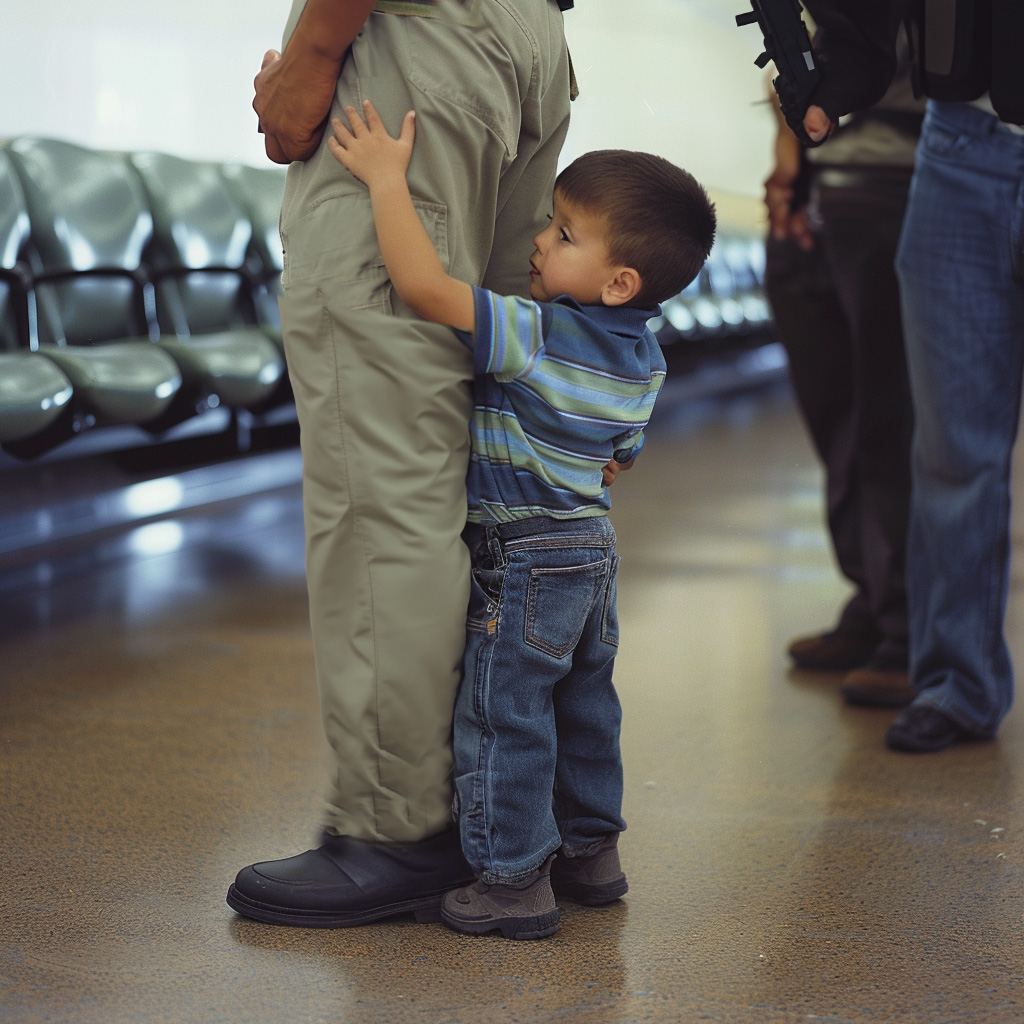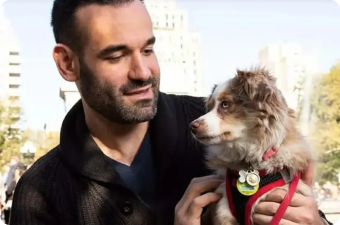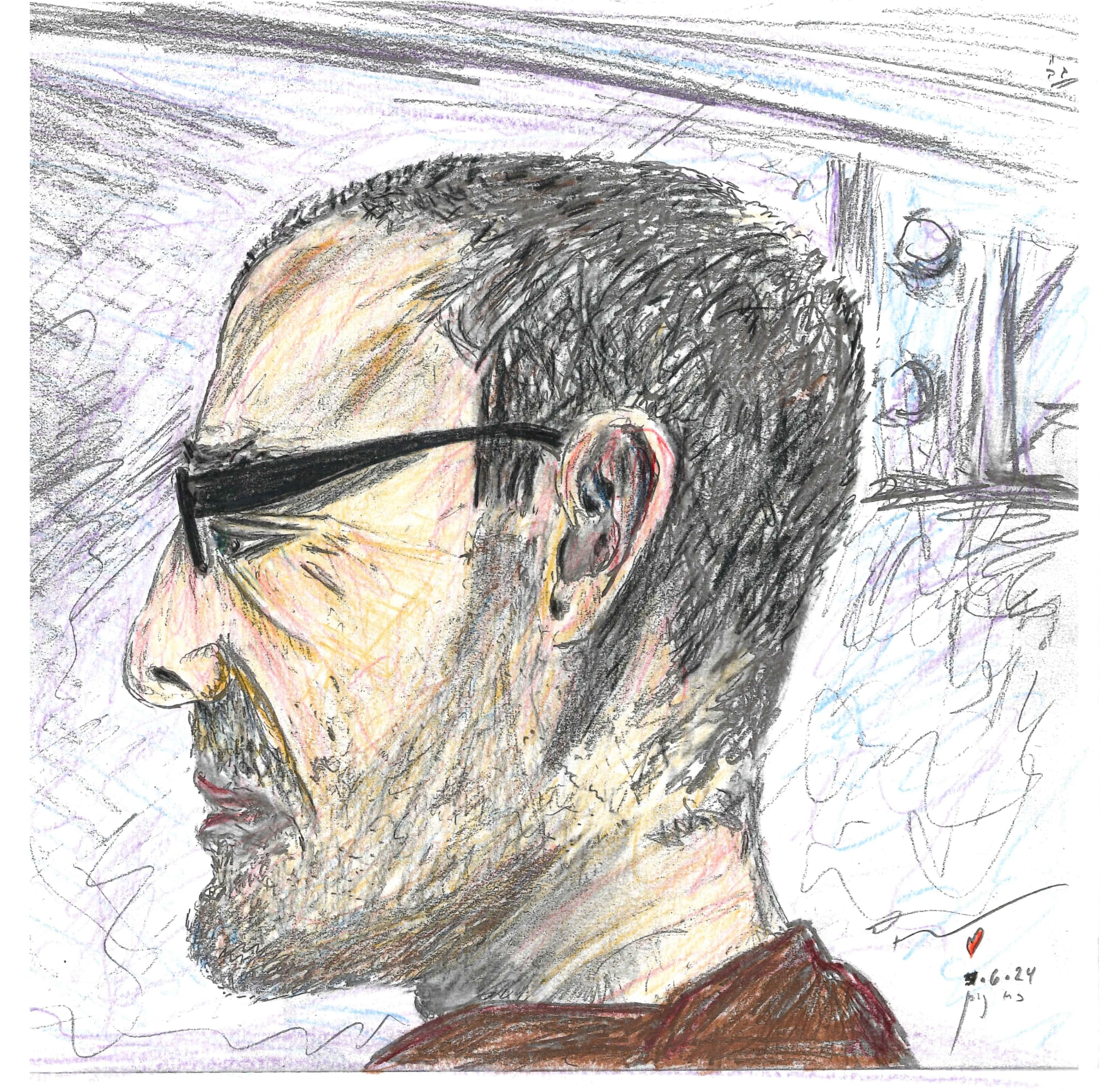Right before a judge decides a sentence, they should be reminded they are sentencing that man’s children, too.
Prison is full of fathers.

Midjourney AI-Generated Image
Some are the “stereotypical” 20-somethings who got a girl (or girls) pregnant on their way to prison, but most I’ve met are men in their 30s, 40s, 50s, and beyond, who allegedly made a mistake later in life, or whose life caught up to them, or who got an unfair charge.
Regardless, for most men here, their core motivation is being a good father — a difficult task anywhere, but especially behind walls of concrete and steel.
One father, David*, whom we met before and who has become one of my best friends here, sits and writes long, detailed stories to his 9-year-old son, who loves science. David is always pulling magazines, newspapers, and books to read-up on new science ideas he can share with his son, Jake*. He structures, the stories, creates detailed outlines and plot charts, and meticulously edits three or more hand-written versions, writing the final edition on plain white paper in crisp penmanship. I’ve had the pleasure of doing one of his book covers, which include the message “To Jake, with love, from Daddy”. (Jake’s mom has told him that David is in the hospital, not prison, so I’m keeping him anonymous until told otherwise.)
Another, John, also one of my best friends here, got clean and lost over 100lbs when his son was born. He looks forward to his phone calls and visits — the one he feared having lest his son be ashamed of his father turned into a tearful, joyous event with his son climbing all over him and touching his face, excited to meet Daddy.
There is nothing served by him being in prison 4 more years, except to prevent his little boy from learning from and being with his father until he’s 8. (We are working to help him get a compassionate release.) David, too, should be home.
Some men watch their children become adults from a distance and become grandfathers, like Brian Zater, who just had his first grandchild from his daughter who was 2-years-old when he went in more than 24 years ago.
Whatever mistakes he made at 22, he doesn’t belong behind bars anymore, and would make a great grandpa.
He’s already got the dad jokes. It is, at least, some comfort, that he has launched many men back into society to be great fathers and community role models.
Men beam with pride at the work their daughter is doing, the schools their children attend, the charity work they have done.
They talk of their sons both with pride and concern that they not follow their path here.
Others lament not being able to have more children, as the system holds them hostage during long appeals processes — even if they will ultimately be found not-guilty.
All men worry about the effect on their children of seeing their fathers in a prison uniform at visiting, of being teased by other children, of not having a father at home. They worry that short, under-15-minute calls are not enough to convey their love, to listen to their children, to guide them from a distance.
Of course, despite being inside, they joke that their children still know how to ask them for money. “You’re 11.
Why you need a MacBook?”
And they send what they can, if not money, then pictures, drawings (men ask me all the time to draw pictures, names, that they can send home to their kids), cards, letters. They worry about their kids’ education and ask their moms, wives, and friends to send them books.
Because FCI Miami is full of men inside for sex offenses, fathers in for white-collar crimes become hypervigilant about who their children are exposed-to on the outside, concerned they aren’t outside to watch them, and become passionate about fixing the system to help prevent further abuse. One father lamented the utter lack of psychological help for the offenders, “who will be back out around our children in a few years.” The lack of dedicated therapy and programming for these men is another example of a system prioritizing punishment over rehabilitation to the expense of society.
There is something nefarious about a cycle of “justice” that rips fathers from young children during their formidable years, leaving millions of kids without guidance, love, validation, and support.
The American system is surely about revenge, bearing a grudge, and not justice, not “correction”.
If we cannot be compassionate to fathers, we should at-least try to be more compassionate for their children.
Some men are dangerous, but most are not. Most are immature, or foolish, or uneducated — and often all three.
But these are fixable without a cage, with education, training, and diligent follow-up. With a fraction of the expense we expend now just to cage men to rot away from their families, we could build them back up and help them be better fathers.
One thing prison has given me is a great appreciation for the incredible dedication and love and effort my father and mother have put into my life, until this very day. It is far more rare, it turns out, outside the Jewish community.
It is certainly very special. In Judaism, the family is sacred. Not merely a vehicle for reproduction or companionship, but elevation of the entire world, from the inside of the home out. Shalom Bayith, peace in the home, is the seed of peace, radiating out to the world, and peace is the entire reason for the Torah, explains the Rambam in the last law of his Mishna Torah’s Hilchot Chanukah.
In this week’s Parsha, Kedoshim, Leviticus 19, G-d tells us: “Do not hate your brother in your heart.
You must admonish your neighbor, And not bear sin because of him.
Do not take revenge nor bear a grudge against the children of your people.
You must love your neighbor as yourself.
I am the lord.”
(Lev. 19:17-18)
Rabbi Sacks explains, “The Torah does not begin with the command to love. Instead it starts with the hard case: what to do with a neighbour, or brother, whom you dislike, even hate? He may have harmed you, offended you, insulted you. He may have acted in a way that you deeply believe is wrong. Your hatred, let us say, is not irrational. What to do in such a case?” (C&C:Leviticus P.303)
He explains that Maimonides teaches: “When one person sins against another, the latter should not hate him and remain silent… Rather, he is commanded to speak to him and say to him, ‘Why did you do such-and-such to me?
Why did you sin against me in such-and-such a matter?’ As it is said, ‘You must surely admonish your neighbor.’ If he repents and requests forgiveness from him, he must forgive and not be cruel.” (Mishnah Torah; Hil. Deot 6:6)
Nachmanides explains, “you will not bear sin because of him by covering up your hatred in your heart and not telling him, for when you remonstrate with him, he will justify himself before you [so that you have no cause to hate him] or he will regret his action and admit his sin, and you will forgive him.” (Commentary to Lev 19:17)
To take revenge is to match someone’s behavior, to stoop to their level. If Reuven does not lend a tool to Shimon, Shimon then refuses to lend one to Reuven. To bear a grudge, is to be kind to them, but to point out that you are being kind *despite* their failing. If Reuven does not lend to Shimon, Shimon lends but says, “Even though you did not lend to me.”.
Both revenge and bearing a grudge are forbidden by the Torah, we “bear sin” by doing so, but these two sins are words.
There is no question America’s angry, vengeful “Justice system” is a near total failure, with over 80% recidivism, and generation upon generation of children following their fathers into poverty and prison.
The boys who enter prison in their 20s often struggle to read, few having graduated college. The sins of the fathers born upon their sons, the sins of us as a society who have run a system out of anger, vengeance, and grudge-bearing born upon our children’s’ generation with crime-ridden cities, uneducated, unskilled, and dependent on other countries for our basic needs. Children reach adulthood with limited horizons, seeing only the military, police, Walmart, fast-food, or crime as their options. Few believe it possible to exit their communities, even if wealth exists literally 15-minutes away in the next neighborhood! This is solvable, by providing books and education programs to children that show them many more options much earlier in life and help them self-
educate, as children are able to do regardless of parental intervention.
Worse, our system does not merely ill-equip children to become adults, but turns our neighbors and brothers who have failed even one time into lifetime “others”, “less-thans”, ostracizing them, making it difficult and often effectively impossible for parents to get jobs once they have “paid their debt” to society. The great Civil Rights attorney, activist, and author Bryan Stephenson writes about how parents who have made mistakes, or fallen prey to addiction (even via unscrupulous pain pill mills) and spent time in prison are then denied access to government housing and funding to feed their families, forcing them outside of society rather than helping them reintegrate and become helpful members.
This is bearing a grudge. This is revenge. And it is a complete failure on drag on society.
A “Justice” system motivated by anger, hatred, and dehumanization is the opposite of holy.
This week’s Torah portion opens, “The Lord said to Moses, ‘Speak to the entire assembly of Israel and say to them, ‘Be holy because I the Lord your G-d am holy.’” (19:1-2) Unlike other ancient faiths, the Torah does not limit holiness to a class of priests, but requires it of each of us. In fact, in Genesis it reminds us that all of mankind is created in G-d’s image — every human is G-dly. We must be holy towards them all.
In my time in prison, which thank G-d comes to an end this Tuesday at 8:00am, I have seen this week’s Parsha play out time and again. In getting to know and understand *why* someone was driven to do the act for-which they are “inside”, their childhoods, abuse, poverty, lack of education, fear, mental health challenges, traumas —
and almost every man “inside” is a victim of such neglect and/or trauma — you can love and forgive them, and want to help them grow. To know them is to love them.
Laying in bed, locked in the cold, dark, gray, mold-infested cell at night, denied medical care and often hungry and in pain, I have often questioned, ‘Where is G-d?’ The answer, this Parsha teaches, and that I have experienced as the most-effective and comforting answer is: Inside each of us. We are formed in the Image of G-
d, and we are tasked with being G-d-like. We are tasked with providing the kindness we seek.
It is a cliche that in the darkest places men find G-d, but that is only half the story. When all the kindness you have prayed for is not showing up, you realize it is upon you to provide that kindness. When it feels like life is being unkind to you, that is the best time to inject kindness into life. When the cell doors unlock, regardless of the hurt and pain, there is always the option to get up and be kind to others. When you cannot find the light, you can be it.
It is in these acts of kindness — even and especially when we are hurt and angry — that we find G-d.
Thus, it is incumbent upon all of us to work for a Justice system that responds to the anger and hurt we feel at men and women who commit crimes with extra love, understanding, and a desire to see the humanity in them, to understand them, and to help them uplift themselves and others.
And if we cannot do it for them, we should do it for their children, and ours.
This will most-likely be my last essay as a Federal Prisoner, please G-d, as I will walk out of FCI Miami Low on Tuesday at 8:00am. It has been a strange pleasure to share the stories of the men I have met inside with you, and I am grateful for the opportunity to have done so (though I hope to never again do so as an incarcerated change and bring freedom and hope to many, physically, mentally, and spiritually.
May all of our brothers and sisters spend their next Shabbat in love and freedom, in Israel and around the world.
See you on the outside. 🙂
Shabbat Shalom, Ari
===============
*name changed
Group message. Draft 1.0. You may share.


